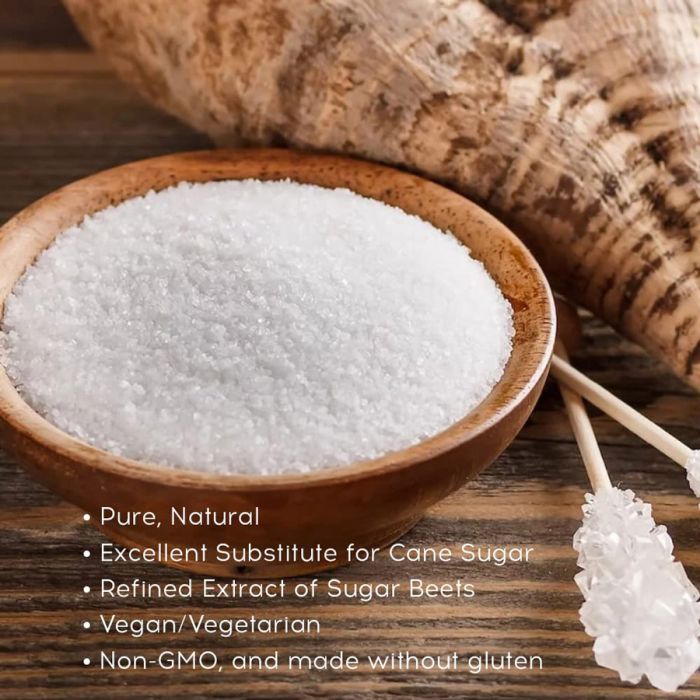Many health-conscious buyers wonder if beet sugar vs cane sugar makes a difference in nutrition.
Many health-conscious buyers wonder if beet sugar vs cane sugar makes a difference in nutrition.
Blog Article
Discover the Uses and Conveniences of Beet Sugar Vs Cane Sugar in Your Daily Diet
Discovering the distinct top qualities of beet and cane sugar exposes greater than just their sweetening capacities; it highlights their one-of-a-kind influence on wellness and cookeries. Beet sugar, recognized for its subtle taste, is often preferred in delicate treats, whereas cane sugar, with its tip of molasses, adds richness to robust meals. Each type holds its own nutritional profile and glycemic ramifications, inviting a much deeper understanding of their duties in a well balanced diet plan and sustainable intake methods.
Origin and Production Processes of Beet and Cane Sugar

The distinctive climates and soil kinds required for growing sugar beetroots and sugarcane add to distinctions in their growing methods and geographic circulation, affecting the business economics and sustainability of their manufacturing. beet sugar vs cane sugar.
Nutritional Comparison Between Beet Sugar and Cane Sugar
Regardless of stemming from various plants, beet sugar and cane sugar are nutritionally very comparable, both primarily being composed of sucrose. Each offers concerning 4 calories per gram, translating to roughly 16 calories per teaspoon. Structurally, both sugars are made up of roughly 99.95% sucrose, with very little quantities of various other substances like moisture and trace element, which do not substantially modify their dietary profiles.

Inevitably, when choosing between beet sugar and cane sugar based upon dietary material alone, both offer the same benefits and downsides as they are basically types of the same molecule-- sucrose, giving quick energy without other nutrients.
Effect on Health: Glycemic Index and Caloric Material
Checking out further into the impacts of beet sugar and cane sugar on health, it is essential to consider their glycemic index and calorie material. Both sugars are try this out categorized as sucrose, which discover this contains sugar and fructose. This composition leads them to have a similar influence on blood sugar level degrees. The glycemic index (GI) of both beet and cane sugar is around 65, classifying them as high-GI foods, which can cause fast spikes in blood sugar levels. This is a critical facet for people managing diabetes or those attempting to stabilize their power degrees throughout the day.
Each kind of sugar contains around 4 calories per gram, making their caloric web content matching. For those keeping track of calorie consumption, especially when taking care of weight or metabolic wellness conditions, comprehending this equivalence is essential (beet sugar vs cane sugar). Nonetheless, excessive intake of any high-calorie, high-GI food can add to health issues such as excessive weight, heart condition, and insulin resistance.
Environmental and Economic Factors To Consider of Sugar Manufacturing
Beyond health effects, the manufacturing of beet and cane sugar also elevates significant environmental and financial worries. Sugar beet growing has a tendency to need cooler environments and has a reduced geographical impact compared to sugar cane, which thrives in exotic areas.
In addition, making use of pesticides and plant foods in both beet and cane sugar growing can cause dirt deterioration and pollution, more impacting biodiversity and neighborhood water bodies (beet sugar vs cane sugar). The choice between cultivating sugar beet or cane typically depends upon local environmental conditions and financial elements, making the sustainability of sugar production a complex problem
Culinary Applications and Flavor Distinctions
While the environmental and economic aspects of sugar production are undoubtedly considerable, the option between beet and cane sugar likewise influences culinary applications and taste profiles. Beet sugar, stemmed from the sugar beet plant, is understood for its remarkably neutral preference. This makes it a flexible ingredient in baking, where it does not modify the taste of other components. It dissolves swiftly and is ideal for usage in cakes, cookies, and breads.
Cane sugar, removed from sugarcane, commonly retains molasses traces, which pass on an unique splendor and deepness. This small molasses taste boosts the intricacy of baked goods, sauces, and marinates. official statement It is particularly preferred in things where a caramel undertone is wanted, such as in brownies or gingerbread. The slight variation in wetness material between beet and cane sugar can affect the structure and uniformity of meals, making cane sugar a preferred option for specific recipes that benefit from its special properties.

Conclusion
In verdict, both beet and cane sugar have distinctive beginnings and production procedures, providing comparable nutritional profiles with minor differences in sodium material and flavor. While their effect on health and wellness, specifically relating to glycemic index and calories, is similar, the choice between them typically comes down to environmental, financial elements, and specific cooking needs. Recognizing these aspects can direct customers in making informed choices that align with their health and wellness objectives and flavor preferences.
Report this page